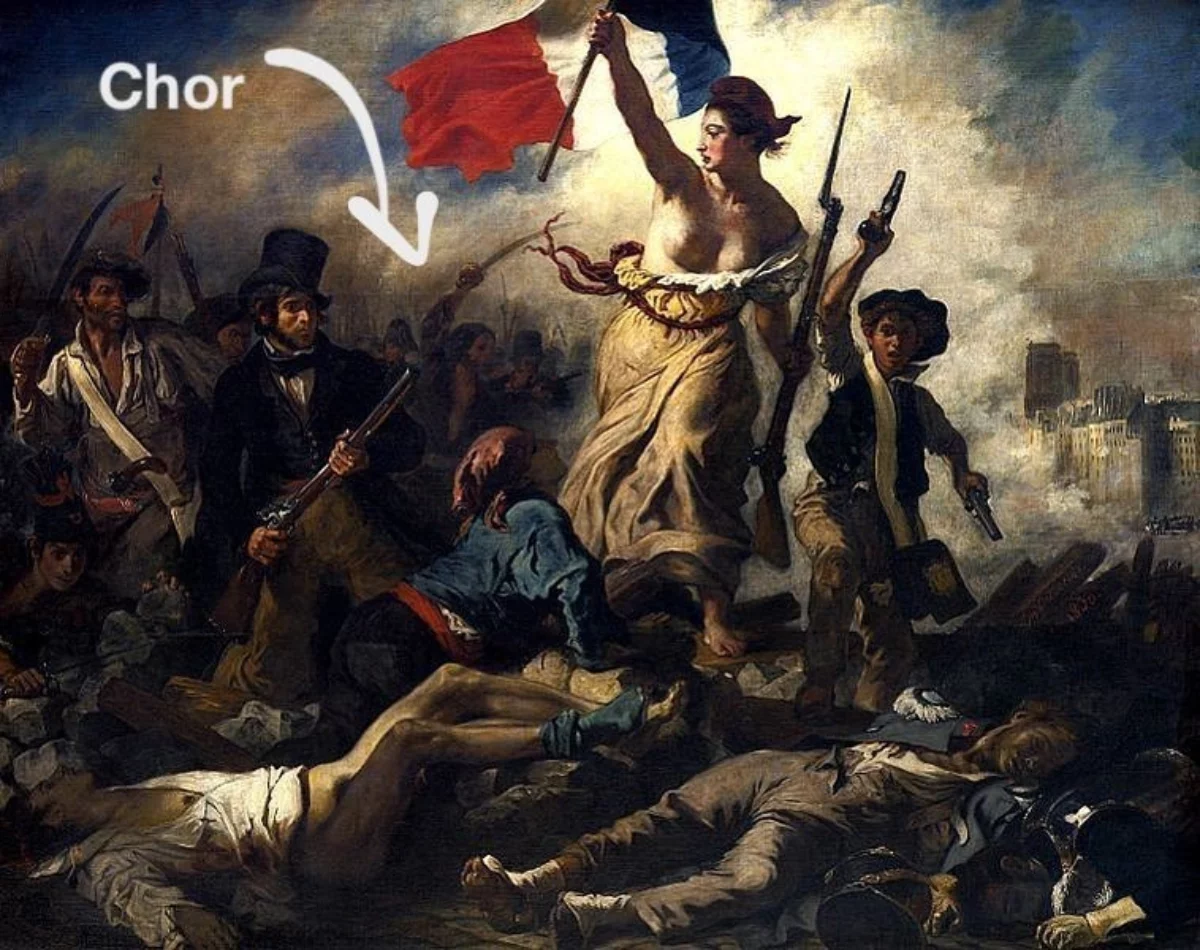Hard to Grasp
By Georg Kasch
In her research project "Chorisch denken" (Thinking Chorally), playwright and performer Nele Stuhler explores the choir.
Choirs rarely play the leading role. If they are not singing the prisoners' chorus "Va pensiero" or taking part in a performance by René Pollesch or Marta Górnicka, they usually remain in the background. In opera they are stage accessories, in productions of classical dramas they are reduced to a small group or even a solo voice. What about the many professional and amateur choirs that often enough manage without soloists in their programs? They were silenced during the corona pandemic, their identity and existence threatened.
This is reason enough to take a closer look at the choir, Nele Stuhler believes. "It is a fascinating entity, on the one hand supra-individual, collective, on the other dangerous, because it is always capable of taking over the quiet, the individual." The playwright, radio playwright and prose writer is a member of several collectives (a choir is one of them). With Jan Koslowski she writes and directs and with Falk Rößler she is part of the performance group FUX. In addition, Stuhler herself has a distinct choral past: she sang in choirs, in the girls' choir of Berlin's Händel-Gymnasium, but also afterwards. As a spoken-word chorister, she was involved in the René Pollesch evenings "Du hast die Pfanne versaut, du Spiegelei des Terrors!" (2009) and "Ein Chor irrt sich gewaltig" (2009).
"Thinking chorally" is what Stuhler has called her search for a new way of working with a choir, funded by a research grant from the Fonds Darstellende Künste. One can speak, breathe and sing chorally. But what exactly might choral thinking look like? For this, Stuhler has "read widely" about the theory and essence of the chorus: "Kraftfeld Chor" by Ulrike Haß, the anthology "Vor dem Palast – Gespräche über Einar Schleef," "Lebhafte Materie" (Vibrant Matter) by Jane Bennett, to pick just a few titles. She has dealt with the history of the chorus, its origins, the ancient choral song, and also with playwrights in whose works choruses play a major role: Aeschylus, Bertolt Brecht, Heiner Müller, Elfriede Jelinek, Thomas Köck, Anne Lepper, René Pollesch, Sibylle Berg... And also with directors who regularly use choruses: Volker Lösch, Ulrich Rasche, Marta Górnicka.
 © Nele Stuhler
© Nele Stuhler
In the course of research, the utopian potential of the choir became apparent: "You can achieve something together that you can't do alone. Because when choral work succeeds, there's often a self-sufficient beauty." Much of this research took place at her desk, where the thought occurred to her, "Isn't it absurd to deal with choir on my own?" That's why there were conversations, for example with Christine Groß, choir director (and performer) at Schleef and Pollesch, but also with other former choristers. They talked about how seriously one is taken when performing as part of a choir, for example. "The lead roles are cool but in the chorus you can't show you've got what it takes." Even worse, "If someone wants to show they are particularly good, it doesn't work out in the harmony."
Such an extensive reading and discussion schedule was only possible thanks to the support of the Fonds. Normally, there is no real research time for artists. This is sometimes noticeable in productions in the independent scene. Research is considered part of a project and must be included in the project application. But, "If you have to describe everything in detail, can you still convincingly include time for research in the budget?" However, it is not only the researching artists who benefit from a concentrated examination of a topic, often there will also be an advantage for one or more subsequent works – and thus for the audience, too. The research fellowship has, at times, allowed Stuhler to read and think her way through dead ends. Not every book she opened contributed significantly to the choral idea, not every conversation made her think. The path was important in order to be able to think through the topic on a fundamental level.
Even though the research grant is open-ended – nothing has to come of it – Stuhler's readings and conversations have turned into a concept for future choral work in which the chorus takes center stage, entirely without a solo counterpart. It enters into conversation with itself, splits up, discusses in changing groups, contradicts itself. The choir as "a fluid being that is difficult to grasp". Can such a choir work on stage, both collectively and on its own? Can a choir improvise? How do you arrange these free spaces? And what effect does that have on the audience? These are questions that are waiting to be answered in practice.
From funding to the rehearsal room and onto the stage - cultural journalists Georg Kasch and Elena Philipp visit projects funded by the Performing Arts Fund as part of #TakeHeart.